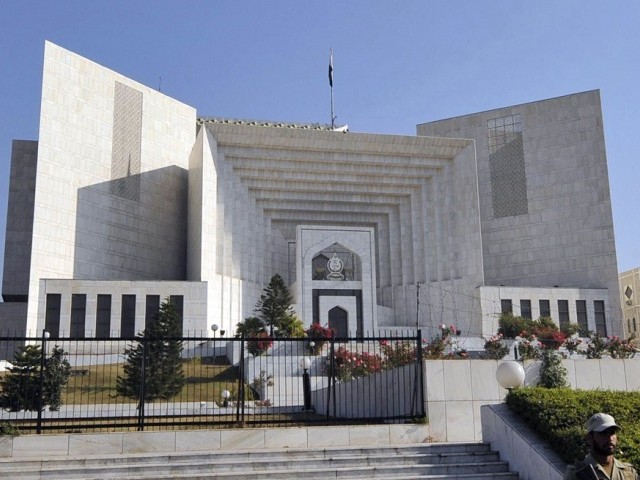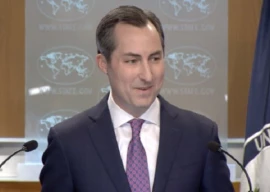
The Supreme Court has said there is no need to issue a detailed judgment in cases where the top court adopts reasoning of the lower courts while adjudicating an appeal.
“If the apex court, having examined the judgment challenged before it, is satisfied with its reasoning and conclusions and is of the view that it does not call for any interference, this court can simply endorse the judgment and adopt the reasoning of the court below.
"In such a case, retracing the same path travelled by the court below appears to be an unnecessary exercise and a waste of public time – time which can be allocated to other cases where the decisions of the courts below have been overturned or modified,” said an order authored by Justice Syed Mansoor Ali Shah.
The three-page order was issued after hearing of a review petition filed against August 1, 2019 order of a Supreme Court bench. One of the grounds for filing the review petition was that the previous SC order had not cited any reason for rejecting the appeal.
“We have not been able to take any exception to the reasoning of the impugned judgment [of the high court] and are of the view that it does not warrant any interference. Leave is, therefore, declined and these petitions are dismissed," said the SC's previous short order.
Upholding the SC's August 1, 2019 order, Justice Shah noted that a concise, simple order can suffice if the apex court does not find a reversible error in the judgment of the lower court.
The order, however, clarified that if the court is to reverse or modify the judgment of the court below, the reasons for the reversal or modification must be set forth.
“Nothing is cast in stone. Old practices evolve with changing times. Burgeoning population and the corresponding rapid increase in litigation require imaginative solutions.”
The order noted that courts all over the world have moved on to efficient time and case management techniques. It said the new approach is by no means a short-cut offensive to fair trial under Article 10-A of the Constitution nor does it in any manner undermine due process and fair-play.
“It is simply a creative way forward that spares the court from writing opinions where a mere adoption of a well-reasoned judgment of the court below through a short order serves the purpose adequately.

1732603002-0/lamar-(4)1732603002-0-405x300.webp)
1720420084-0/brad-pitt-(2)1720420084-0-165x106.webp)




1732600231-0/BeFunk_§_]__-(50)1732600231-0.jpg)










COMMENTS
Comments are moderated and generally will be posted if they are on-topic and not abusive.
For more information, please see our Comments FAQ